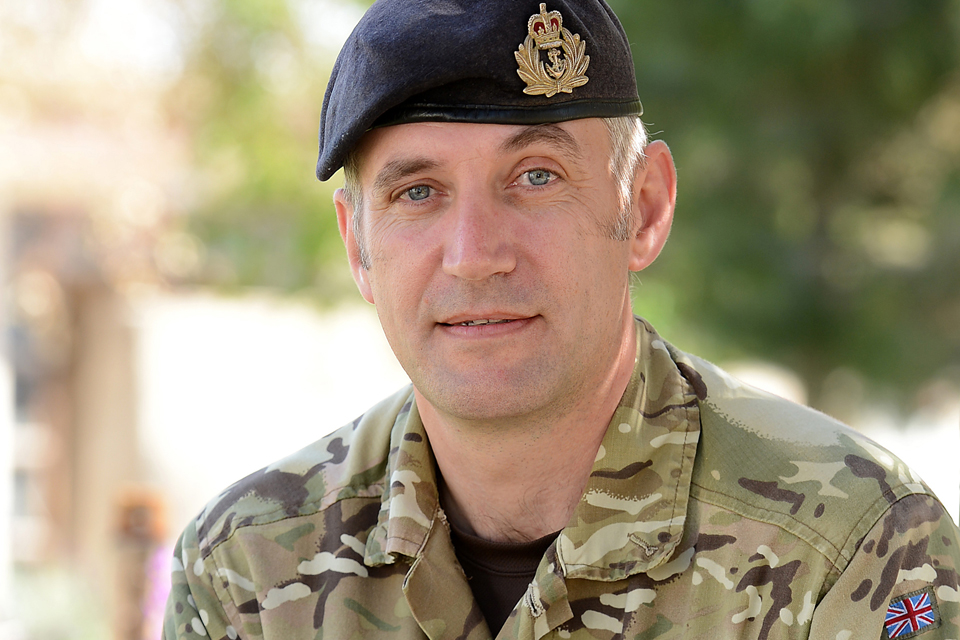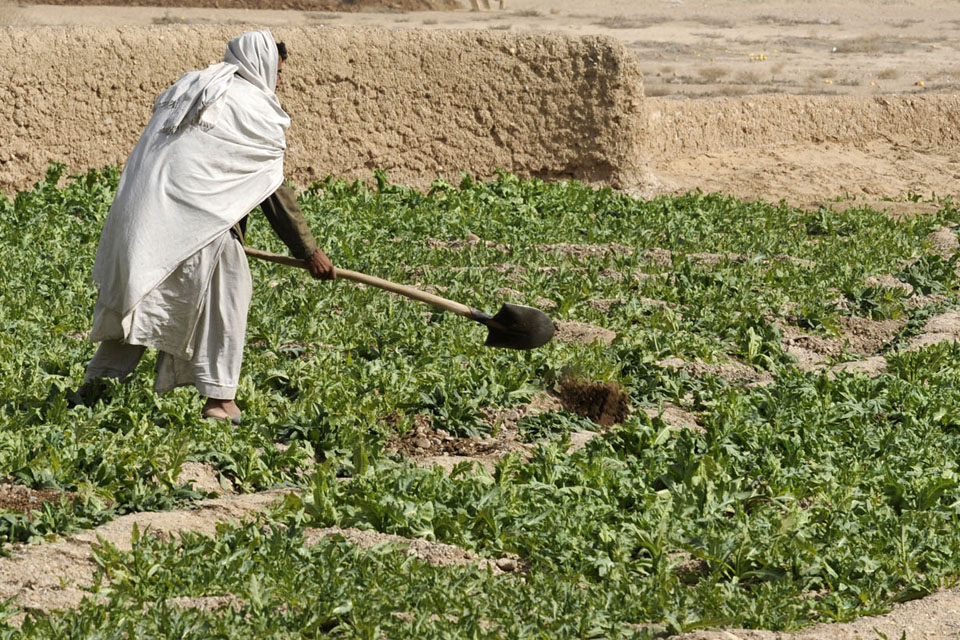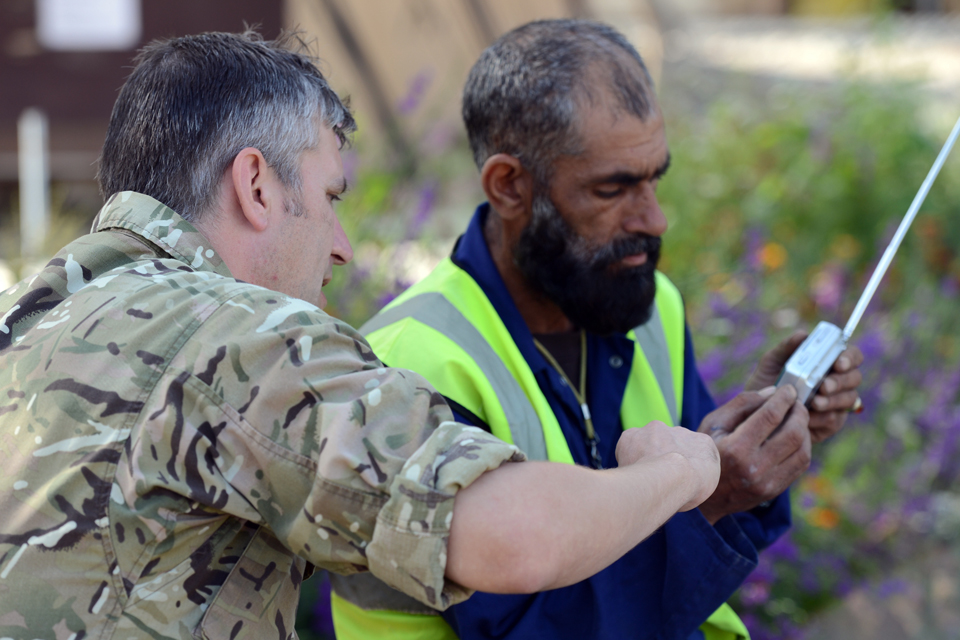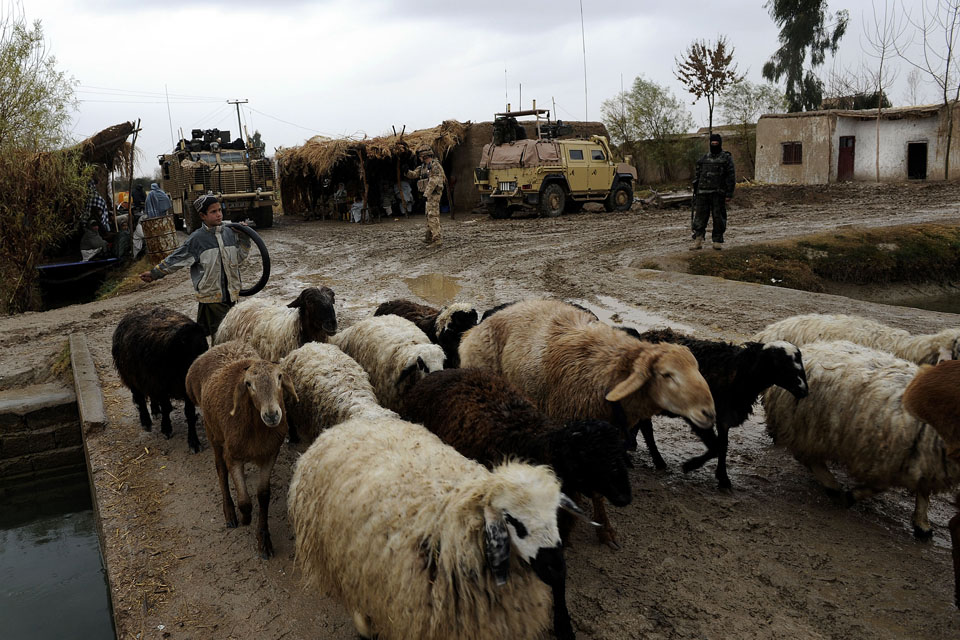Navy reservist creates 'Afghan Archers' on Helmand radio
A Royal Navy reservist has created a hit radio programme in Helmand province inspired by BBC Radio 4's popular soap opera 'The Archers'.
![An Afghan soldier demonstrates a wind-up radio to a group of locals and elders in Helmand province (library image) [Picture: Crown copyright]](https://assets.publishing.service.gov.uk/media/5a6209c240f0b63b5bc8f446/s300_KALANG_3_Day_Op-133.jpg)
An Afghan soldier demonstrates a wind-up radio to a group of locals and elders
Lieutenant Jo Nicholson has put his farming background to good use while deployed in Afghanistan by creating ‘Crops and the Farmer’ - the show is broadcast in Pashto on Radio Tamadoon and provides advice and tips for Afghan farmers.
Radio Tamadoon is a community radio station run by ISAF for the local people of Helmand, presented by local Afghan DJs.

Lieutenant Jo Nicholson of the Royal Naval Reserve [Picture: Sergeant Barry Pope, Crown copyright]
Working as an Afghan Engagement Specialist in Headquarters Task Force Helmand in Lashkar Gah, 42-year-old Lieutenant Nicholson recognised the potential for a farming programme in Helmand, where the economy is based on agriculture.
Unlike ‘The Archers’, which has regular cast of around 60, ‘Crops and the Farmer’ has only 2 main characters. Lieutenant Nicholson, of the Royal Naval Reserve, described them by saying:
The first is a wise old man called Khodai Dad. He is a village elder and represents the traditional ways of farming in Helmand. Learning from him is Tor Gul, a young man prematurely made head of the family and placed in charge of the family farm.

An Afghan farmer digs in his field (library image) [Picture: Staff Sergeant Mark Jones, Crown copyright]
The advice that Tor Gul receives consists of useful tips on crop production that local Helmand farmers can then put into practice. Lieutenant Nicholson added:
Tor Gul relies heavily on Khodai Dad’s knowledge to maintain his farm but he also learns new techniques from other characters in the show, which he passes back to Khodai Dad.
On top of teaching new farming techniques, Lieutenant Nicholson is trying to encourage farmers to grow fruit and vegetables that are less common in Helmand so they can grow crops all year round, earning himself the nickname ‘Lablaboo’, which in Pashto means ‘sugar beet’ or ‘lazy man’.

Lieutenant Jo Nicholson and an Afghan man listen to a portable radio [Picture: Sergeant Barry Pope, Crown copyright]
Lieutenant Nicholson, whose family run a farm to which he will return after his tour, writes the scripts, which are then translated and voiced by 2 local Afghan DJs. Lieutenant Nicholson regularly holds focus groups with the local gardeners of Lashkar Gah to ask for their opinions and feedback. He added:
The overall improvement in security in Helmand means that farmers are able to market their crops more easily and are in need of more ideas for crops that can be grown throughout the year.
The Afghans seem to love phoning in. We get a lot of audience participation; people phone in and want more information after the shows. Some phone in just to chat.

A young Afghan farmer ushers his sheep past a checkpoint in Nad 'Ali (library image) [Picture: Staff Sergeant Mark Jones, Crown copyright]
Each show lasts for 10 minutes and starts with a reworked version of ‘The Archers’ theme tune recorded by local Pashtun musicians.
Lieutenant Nicholson, from Adstock, a veteran of 8 tours of duty, including to Iraq and 3 previous deployments to Afghanistan, says that the show has even helped him get back into farming, as he has had to research alternative farming techniques to make it relevant for his Afghan listeners. Lieutenant Nicholson retires from radio to help on the family farm later this month.
The UK Armed Forces are changing, with greater emphasis being put on the Reserve Forces. The aim is that, by 2020, reservists will be a fully integrated component of the ‘Whole Force’ and will routinely deploy as part of all military operations.
To achieve this MOD is investing an additional £1.8 billion in the Reserve Forces.